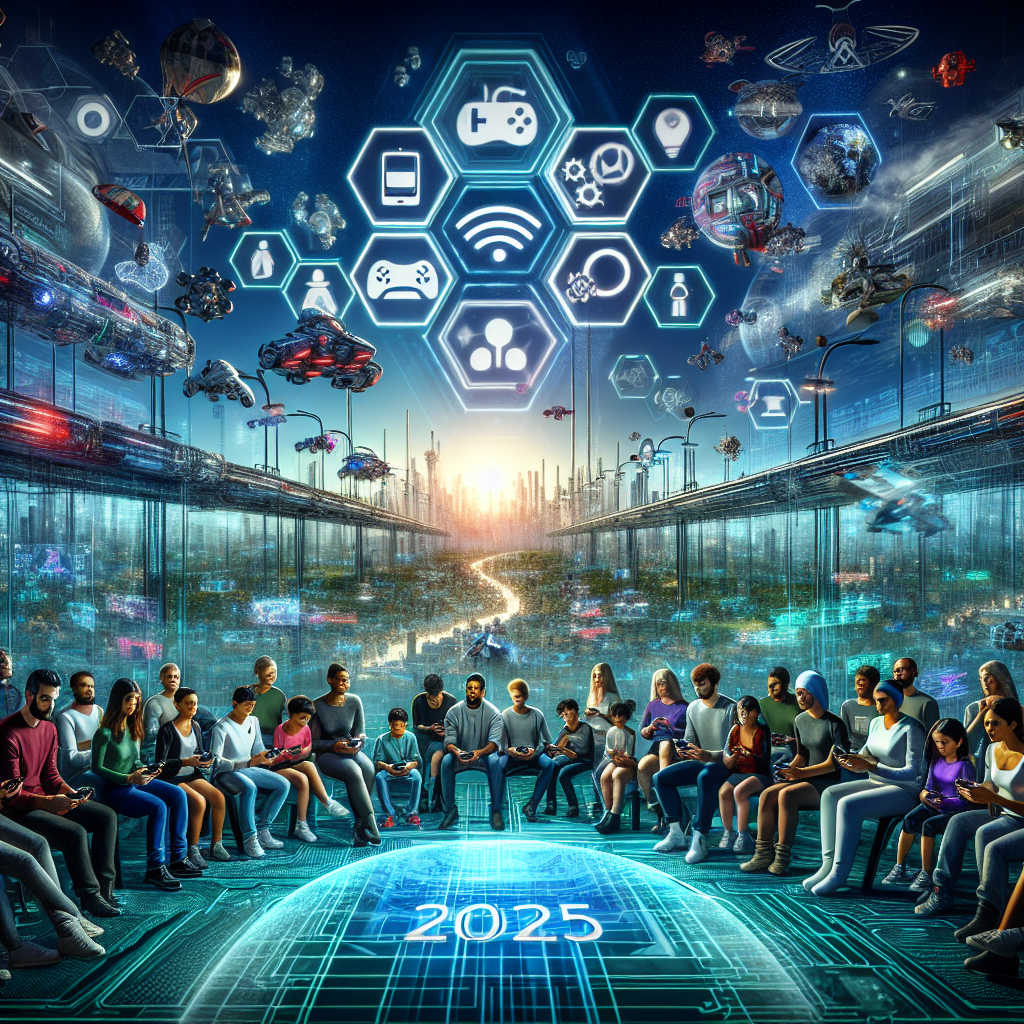Building Bridges: The Role of Diverse Gaming Communities in 2025
As we venture deeper into the digital age, the landscape of gaming continues to evolve, intertwining with various facets of culture, technology, and social interaction. By 2025, diverse gaming communities are anticipated to play an even more significant role in fostering connection, understanding, and collective identity across the globe. Gamers from varying backgrounds bring unique perspectives and stories to the virtual table, creating platforms through which they can build bridges across cultural, social, and geographical divides.
The Evolution of Gaming Communities
In the early days of gaming, communities often formed around local multiplayer environments or through forums dedicated to specific titles. Fast forward to 2025, and technological advancements have transformed the way gamers interact. With the proliferation of cross-platform play, virtual reality (VR), and augmented reality (AR), geographical boundaries have disappeared, allowing players to connect in immersive, shared environments.
As a result, gaming platforms like Twitch, Discord, and online multiplayer games have evolved into inclusive spaces where individuals from different backgrounds converge. These platforms encourage players to express themselves while participating in collaborative or competitive gameplay, creating a mosaic of experiences that enriches the overall gaming culture.
Promoting Inclusivity and Representation
The beauty of gaming lies in its ability to tell stories and foster empathy among its players. By 2025, diverse gaming communities are envisioned to emphasize inclusivity and representation more than ever. Game developers are increasingly recognizing the importance of reflecting different cultures, sexual orientations, and identities in their narratives and character designs.
Such representation allows gamers to see themselves in the digital worlds they explore, breaking down stereotypes and challenging societal norms. This visibility not only empowers marginalized players but also educates the wider gaming community, encouraging dialogue around diversity and identity.
Bridging Cultural Divides
Diverse gaming communities have the potential to bridge cultural divides in unprecedented ways. Through collaborative gameplay, players from different backgrounds can learn about each other’s customs, languages, and traditions. Games often serve as cultural touchstones—recipes for understanding that encourage positive interaction.
For instance, games like "Sakura Samurai" or "A Plague Tale: Innocence" can introduce players to elements of Japanese or French culture respectfully and engagingly. By participating in community-led events, players can share their cultural backgrounds through music, art, and storytelling integrated into the game spaces, further enhancing mutual respect and understanding.
The Role of Technology in Community Building
As technology continues to advance, the tools available for building diverse gaming communities also improve. The rise of artificial intelligence (AI) and machine learning enables more personalized gaming experiences, allowing communities to tailor content and events to reflect their interests and values.
For instance, AI can be used to create custom matchmaking systems that prioritize diversity, enabling groups with varied experiences to collaborate effectively. Virtual reality platforms can facilitate events that mimic real-world interactions, such as cultural festivals or educational seminars, where players learn directly from one another in 3D environments.
Moreover, the use of blockchain technology may lead to new community governance models, empowering players to have a say in decision-making processes surrounding community guidelines, game development, and self-moderation. This hands-on approach fosters a sense of ownership and responsibility, essential ingredients for building trust within diverse gaming communities.
The Challenges Ahead
While the potential for diverse gaming communities to foster connection and understanding is immense, it is not without challenges. Toxic behavior, harassment, and discrimination have plagued gaming since its inception, often making marginalized communities feel unwelcome. To combat this, 2025 is likely to see significant emphasis on community moderation and the implementation of algorithms designed to identify and curb toxic behavior swiftly.
Additionally, game designers and community organizers must prioritize accessibility and inclusivity in their practices to ensure that all players, regardless of background or ability, can participate fully. Initiatives promoting empathy, respect, and constructive dialogue will be fundamental in shaping welcoming gaming environments.
Conclusion
By 2025, the role of diverse gaming communities is poised to transcend pure entertainment. They will emerge as vital players in bridging societal divides, redefining cultural narratives, and promoting a more equitable digital landscape. As we move forward, it is crucial for gamers, developers, and community leaders to work collaboratively to instill an ethos of inclusion, respect, and shared human experience within these virtual worlds. In doing so, we can ensure that gaming remains not just a pastime but a powerful avenue for promoting understanding and creating lasting connections among people across the globe.




